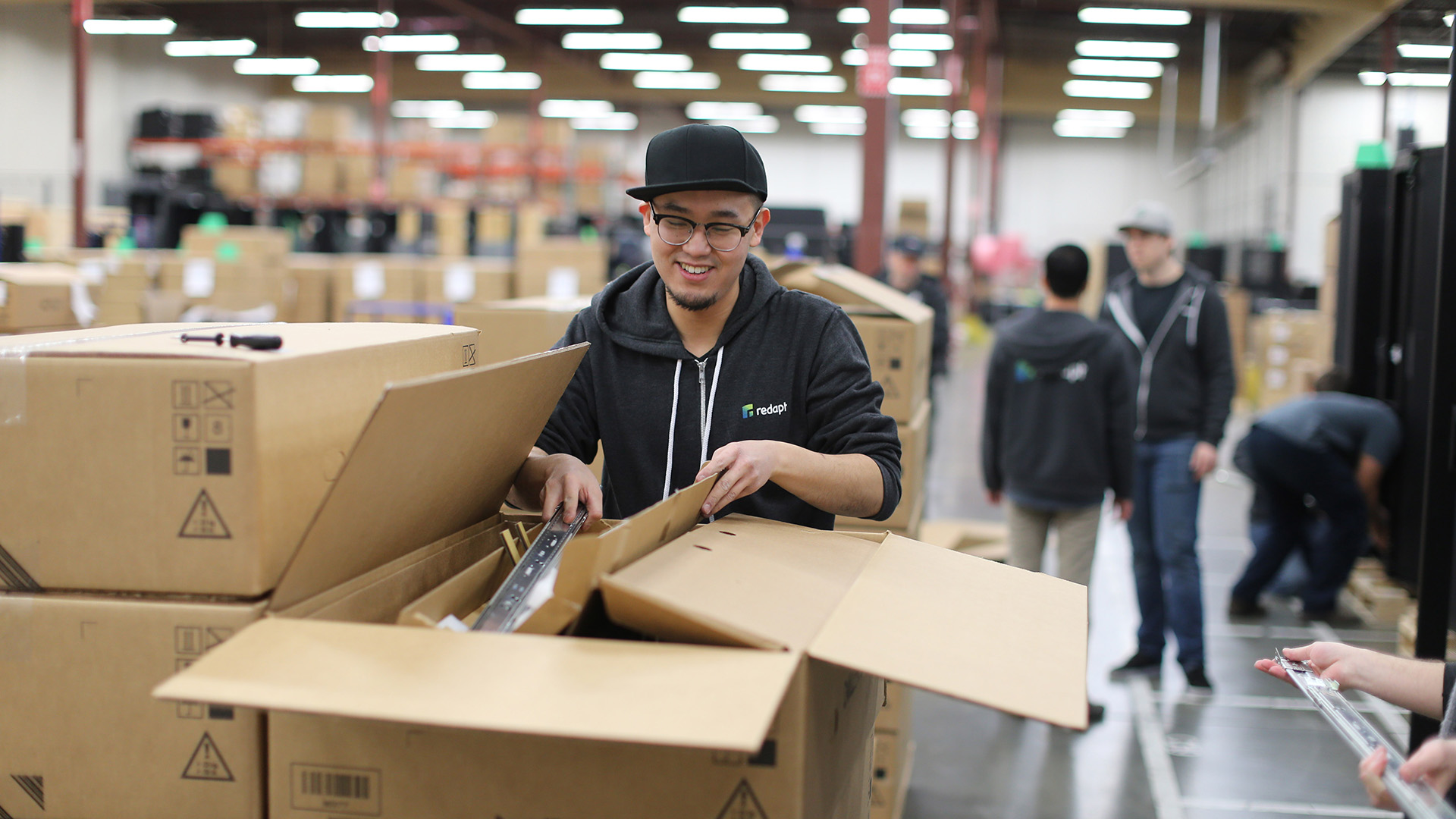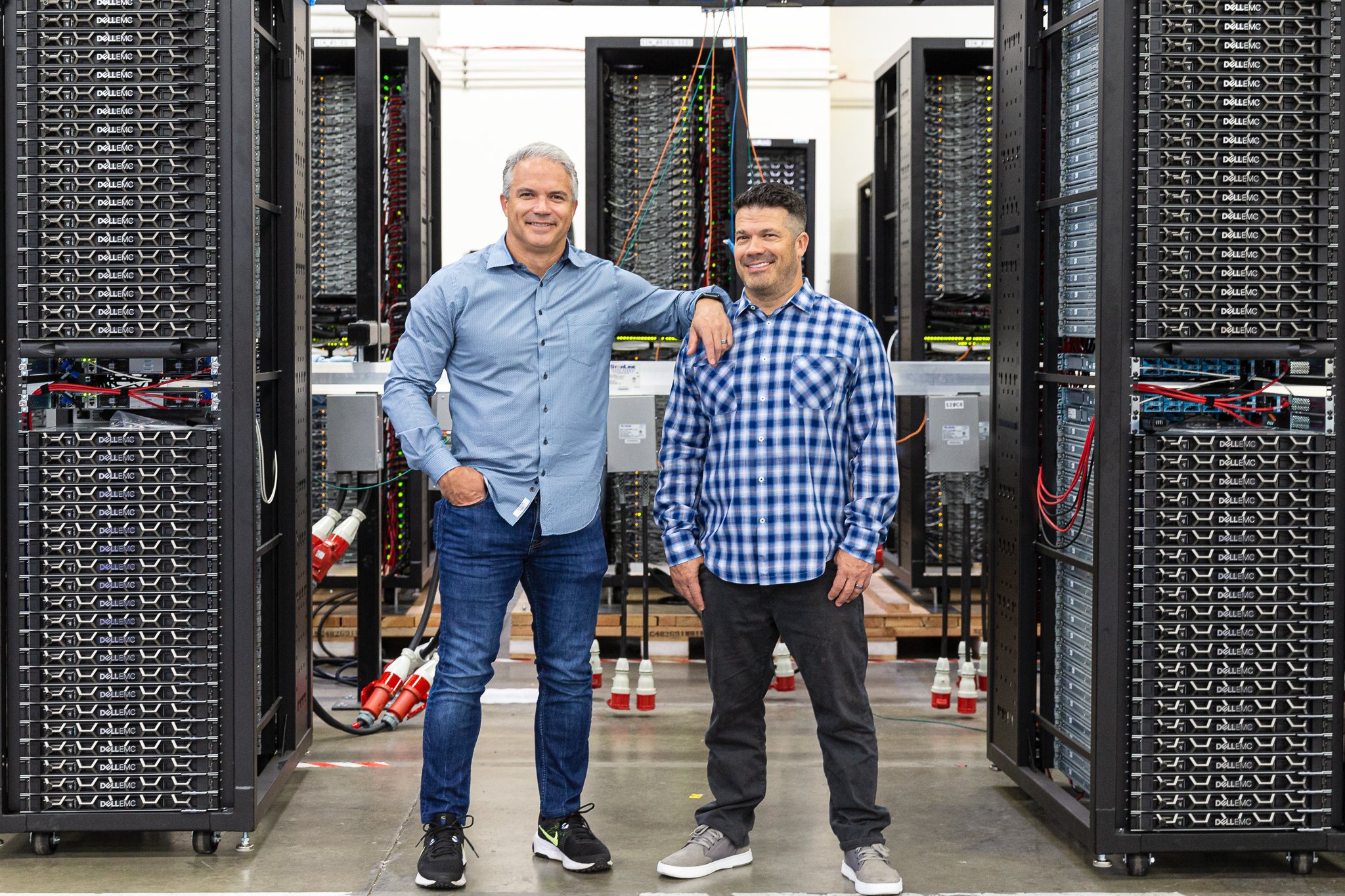2020 has brought about a lot of changes—most of them unwelcome. For most businesses, one of those changes was the shift, almost overnight, to having a remote workforce.
Redapt was one of them.
As soon as our state governor announced a shutdown, we immediately implemented a work-remote policy for every employee able to perform their job functions remotely.
In many ways, we were one of the luckier ones. With business units throughout the nation, we have been able to maintain business continuity throughout the pandemic.
We’ve also helped a number of our customers do the same. We delivered solutions that made it as painless as possible to suddenly have dispersed teams.
In a recent blog post, you can read some of our thoughts on how to safely and efficiently enable remote work. Here, though, we want to share some of the articles about the shift to remote work that can help you manage having a widespread team going forward.
Dive Deeper: The In-Depth Guide to Boosting Your Competitiveness Through Workplace Modernization
“Our Work-from-Anywhere Future” by Harvard Business Review
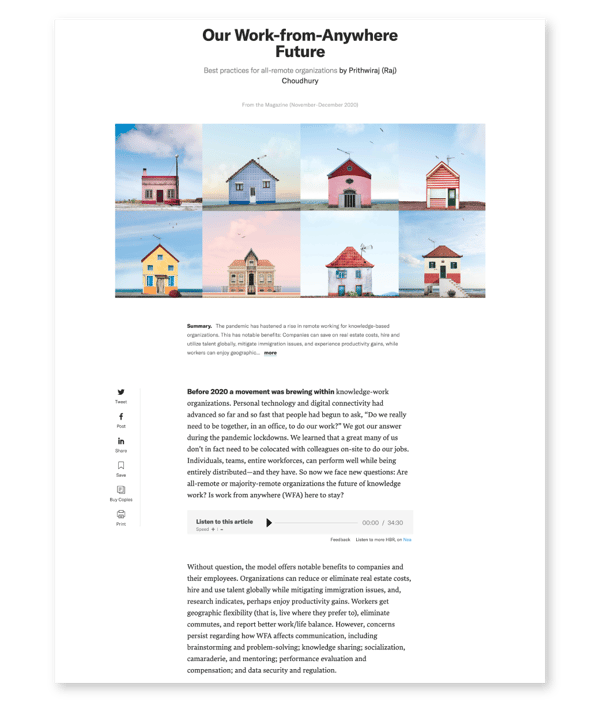
Penned by an Associate Professor of Business Administration, this extensive piece examines the benefits, challenges, and history of remote working.
According to the article, one often overlooked benefit of remote workforces is its effect on the environment. As the writer notes, in 2018, the average American commuted an average of 27.1 minutes each day or roughly 4.5 hours a week. Simply cutting down these commute times translates into a substantial reduction in emissions.
Our thoughts: Anything that reduces pressure on the environment or helps get employees out of their vehicles is a positive. For those companies looking to greatly reduce their carbon footprint, keeping remote work as an option would be an easy step to take.
“If working from home is the ‘future of work,’ here are 11 reasons why the office sounds better” by GeekWire
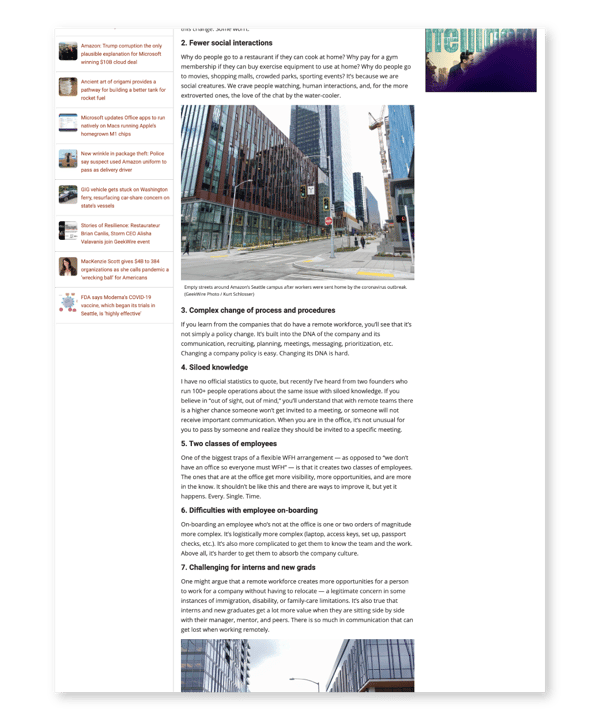
In contrast to the Harvard Business Review article, this article from GeekWire takes a less optimistic view of remote work.
As the title suggests, there are some big concerns about remote work continuing post-pandemic. Among these concerns are siloed knowledge, fewer social interactions, and difficulties with employee onboarding compared to office environments.
Our thoughts: While we don’t share the negativity about remote work with the author of this article, there are definite benefits to having teams working together in person. One solution we expect a lot of businesses to take post-pandemic is a hybrid plan where employees are able to have much more flexibility in how they work but coming into the office will also be encouraged.
“How Working From Home Is Changing The Way We Think About Where We Live” by Forbes
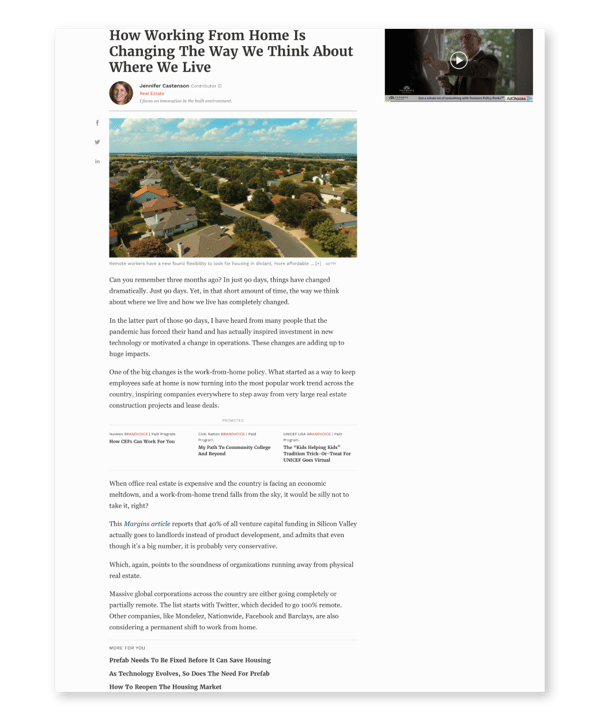
Among the statistics included in this article on remote work and employees is a poll from Gallup that found close to 60% of employees would like to continue working remotely even after pandemic restrictions have been lifted.
The article also mentions a Wall Street Journal interview with Facebook CEO Mark Zuckerberg in which the company’s founder reveals that roughly 75% of his employees have shown interest in moving to a different location if they can continue to work remotely.
Our thoughts: There are obvious benefits for employees being able to live where they want. For businesses, this can also help with talent acquisition by bringing people into the company fold who normally wouldn’t want to uproot their lives. There are logistical issues, though, such as time zones and cost-of-living differences that need to be ironed out.
On to 2021
Whether the days of offices being the center of a business returns once COVID-19 is finally behind us remains to be seen. For some companies, the genie may be permanently out of the bottle. For others, the benefits of having a centralized location might still be the way to go.
Either way, 2020 has taught all of us that change can be forced on us quickly. That means businesses need to create systems and operations that are able to adapt rapidly to disruptions.
To learn more about how Redapt has adapted—and helped clients adapt—during the pandemic, read our blog post, Business Continuity Through COVID-19.
Find the information you need to successfully modernize how your organization operates, along with how you can avoid common pitfalls along the way. Click here to read our in-depth guide to boosting your competitiveness through workplace modernization.






